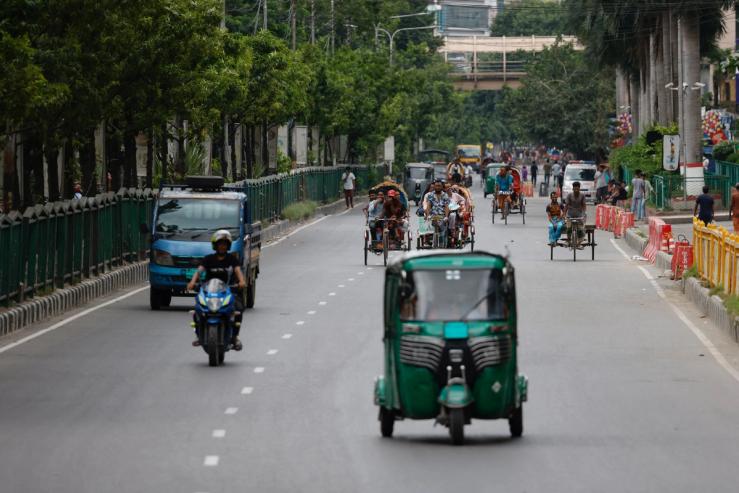The News
Limited internet connectivity appeared to be restored in Bangladesh as of Wednesday, after several days of a blackout that business leaders had criticized as hurting the country’s already struggling economy and human rights advocates said was stifling information getting in or out the country. Some offices and banks also opened for a few hours during the day as a government-imposed curfew was partially lifted.
The government had imposed the measures after weeks of student-led protests against job quotas that demonstrators said unfairly privileged allies of Prime Minister Sheikh Hasina. Most of these have since been scrapped by the country’s Supreme Court. Nearly 200 people have been killed and thousands detained during the unrest, The Associated Press reported. Protest leaders have called a hiatus in the demonstrations, calling on the government to lift all the restrictions and free protesters.
But experts cautioned that while the quotas sparked the unrest, the protests are part of a broader movement that could determine the country’s political future — and pose a major challenge for Hasina.
SIGNALS
Bangladesh’s already-struggling economy has suffered significant losses
Bangladeshi business leaders estimated that the protests and the subsequent government crackdown have caused losses worth $1.2 billion in five days, a cost felt particularly in its garment exports sector, Al Jazeera reported. Vandalism and arson attacks have also caused significant damage, including to the capital Dhaka’s metro system and the state broadcaster headquarters. The nationwide internet shutdown has been devastating for the Bangladeshi tech sector, Rest of World wrote, which generates $1.4 billion yearly in exports to about 80 countries. Tech workers were left feeling “helpless,” the outlet added. “The internet is a basic human right now and we are deprived of that,” one worker said.
Hasina’s government rests on a foundation of intimidation
Sheikh Hasina’s administration has taken an increasingly authoritarian turn, alienating vast portions of society, an expert who studies authoritarianism in Asia told the BBC. In her 15 years in power, Hasina has projected an image of stability and growth that has largely been achieved by quashing dissent, but cracks are starting to show, an economist argued in The Diplomat. Hasina’s fourth election victory in January this year was marred by allegations of vote rigging, and she’s become known for her fierce intimidation of her political opponents. Indeed, she has blamed the protests and ensuing violence on the opposition, saying that she was “forced” to impose a curfew. Some student protesters have reported being detained and tortured, but officials have denied knowledge, the BBC reported.
Protests could shape the future of the country
The recent protests are a symptom of a broader political shift in Bangladesh, and have plunged the country into its “most severe political crisis in years,” an economist wrote in The Diplomat. The government’s crackdown triggered an almost immediate backlash, including from groups who have no clear interest in scrapping the jobs quota. That broad participation shows the movement is a “reflection of deep-seated societal discontent,” and not a single issue — and that more people feel emboldened to speak out now. That willingness might be a sign for Sheikh Hasina that even “authoritarian regimes have an inherent expiry date,” Indian independent news outlet Scroll wrote.



